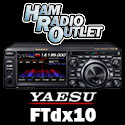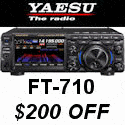FCC Proposed Rulemaking about paid employees and emergency drills
Discussion in 'Amateur Radio News' started by K7FE/SK2017, Mar 24, 2010.
- Thread Status:
- Not open for further replies.
Page 1 of 22
Page 1 of 22
- Thread Status:
- Not open for further replies.










